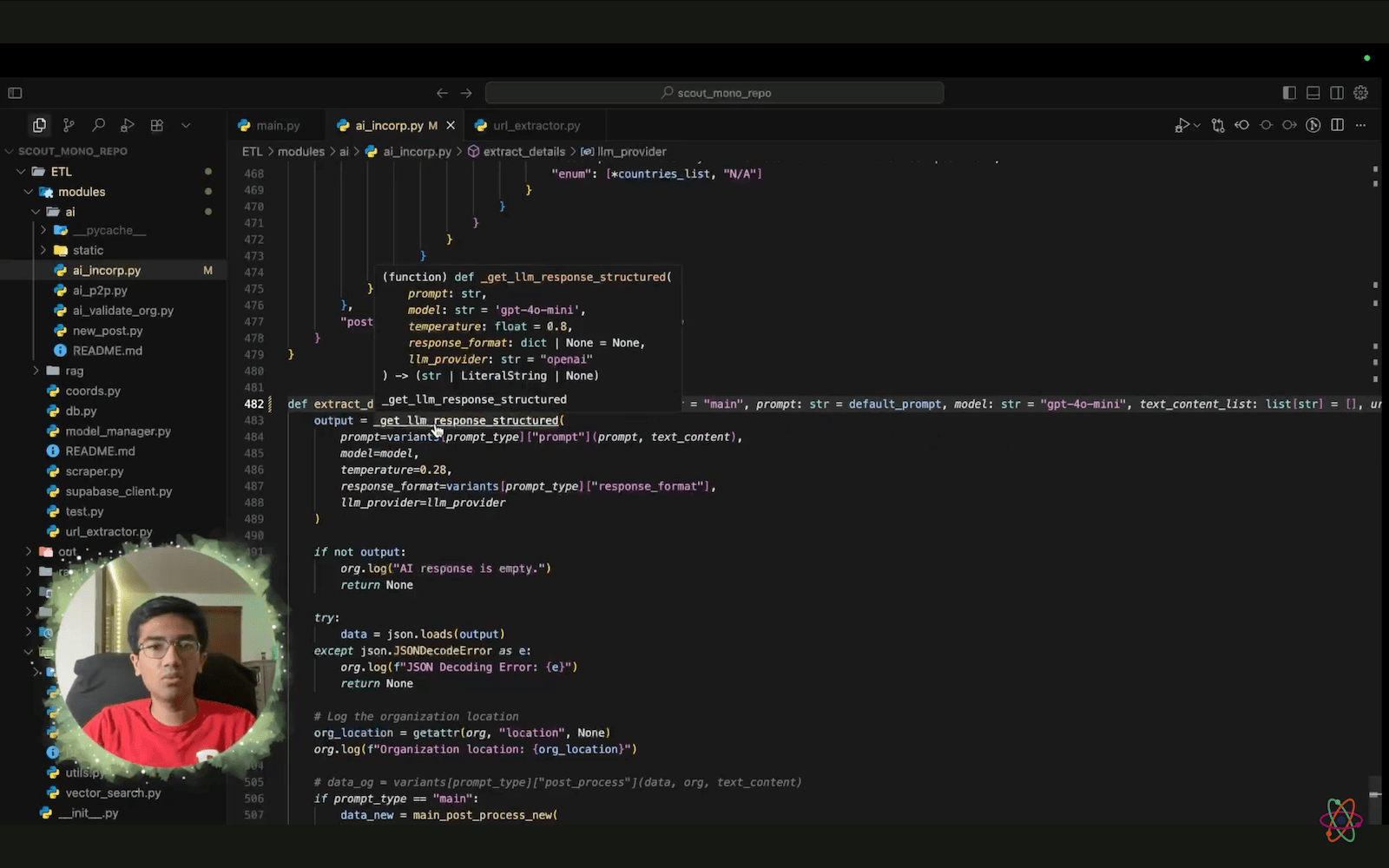
Back
Video: How Scout Uses AI
At Samaritan Scout, we believe that finding meaningful volunteer opportunities should be as simple as typing a few words into a search bar. Behind the scenes, however, that simplicity requires a great deal of technological sophistication. Our platform uses artificial intelligence (AI) in four distinct ways—each one designed to make sure that volunteers can discover local opportunities quickly, accurately, and without friction.
Here's how college intern Akash Dubey explains the ways our platform uses AI, or read the summary below.
1. Embedding Models: Turning Text into Meaningful Data
One of the most important tools in our AI toolbox is the embedding model.
For the layperson: embeddings are a way for AI to understand text not just as words, but as concepts. Imagine every word, sentence, or paragraph mapped onto a coordinate system. Words with similar meanings sit close together; words that are unrelated live far apart. This lets us measure how similar two pieces of text are.
For the technical audience: we use text embeddings (vector representations of textual data) to evaluate the relative importance of different features on nonprofit websites. This helps us determine which pages to scrape with our web crawler. For example, a page labeled “Volunteer Opportunities” is far more relevant than a page with “Our Story.” Embeddings provide the mathematical foundation for making those distinctions at scale.
2. Large Language Models for Structured Data Extraction
Once Scout identifies relevant pages, we use large language models (LLMs)—like Gemini or OpenAI’s GPT-4.0 Mini—to extract key information.
Normally, when you chat with ChatGPT, it generates free-form text. But Scout uses structured output mode, which confines the model to respond in a strict JSON format. This means instead of getting loosely phrased text, we get highly structured data, such as:
-
Organization name
-
Address
-
Specific volunteer opportunities
For our database to function, that structured format is critical. It transforms messy, unstructured website text into clean, usable fields that can be displayed seamlessly to users.
3. Post-Processing and Accuracy Checks
Even the best AI models can “hallucinate”—producing data that looks plausible but isn’t correct. To counteract this, we built a second AI validation layer.
After the first LLM generates a JSON output, we send that output to another model. Its job is to verify whether the extracted data actually matches the original text. Think of it as a built-in fact-checker.
This extra step ensures the integrity of the information in Scout. Volunteers looking for opportunities deserve accuracy, not guesswork.
4. Intelligent Search with Vector Databases
Finally, when users type queries into Scout, AI powers the search itself.
Here’s how it works:
-
We take the user’s search terms and convert them into an embedding vector.
-
We compare that vector to all the embedding vectors already stored in our Supabase/Postgres database.
-
Using similarity scoring, we return the most relevant organizations and opportunities.
For example, if a user types “help animals,” Scout knows to surface results that mention “wildlife rescue,” “animal shelter,” or “pet fostering”—even if the exact words “help animals” never appear on the nonprofit’s website.
Why This Matters
AI isn’t just a buzzword for Samaritan Scout—it’s the engine that makes our mission possible. Without embedding models, structured LLM outputs, validation checks, and vector-based search, it would be nearly impossible to deliver such accurate, real-time volunteer matches across thousands of nonprofit websites.
By combining cutting-edge AI techniques with a focus on human-centered impact, Scout is creating the Internet’s first volunteer search engine designed to connect people directly with opportunities to serve—no middlemen, no donation requirements, just meaningful ways to give back.
Copyrights © 2025 Samaritan Scout, a 501(c)(3) organization. EIN: 92-3607846

